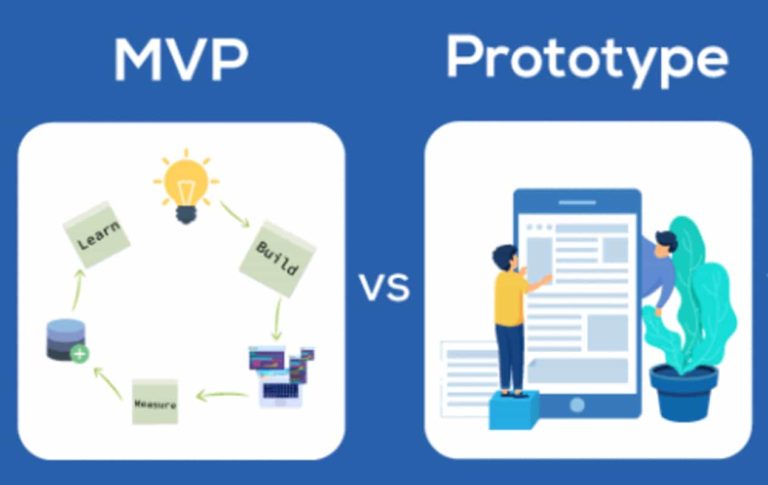Top 8 Strategies To Scale Your Edtech Startup
Looking for ways to scale your Edtech startup? Here are 8 expert carefully written strategies to do just that.

The tech industry is rapidly developing and the education sector is not left behind in the advancement. According to HolonIQ statistics, the global education industry is projected to rise to $7.3 trillion by 2025 at an annual growth rate of %17.85.
An education technology (edtech) startup provides enhanced learning solutions through the application of new technology. This new transition has made education flexible, simple to run, more productive, easily accessible and also accelerates understanding.
Difference between EdTech and eLearning
These two terms are often used interchangeably but in reality, there are some clear distinctions between them. Both education technology and electronic learning (E-learning) serve the same goal, which is to enhance education through technology however, that is as far as their similarities go.
While Edtechs have transformed conventional education systems through the use of digital tools such as virtual learning realities, automated teaching, online classrooms, collaborative learning experience, and cloud storage.
E-learning is simply an alternative to the orthodox learning system (which is paper-based in nature). It encompasses taking courses via online platforms like Coursera or Udemy, submitting papers, and having them graded in a non-physical way. Teachers as well get to deliver lectures, and track students’ activities, using an app or a website on an internet-enabled device.
In addition, an edtech implements new technologies to facilitate the learning process and boost classroom performance. E-learning only covers the mode of delivery of educational materials.
Many entrepreneurs have taken advantage of this boom in the sector to build scalable businesses. Perfect examples are Kahoot! (a game-based education platform that allows teachers to design personalized learning games) and Nearpod (a tool designed to help teachers create, and distribute interactive presentations or lessons with students and vice versa).
Problems associated with EdTech industry
- Poor network connectivity and device compatibility can affect the classroom learning process.
Solution: Provide learning devices alongside education costs. Nigeria’s Ulesson went as far as offering special pricing plans inclusive of learning devices, with an option for installment payment. - Some schools and educational institutions might be skeptical about unorthodox methods of learning.
Solution: Founder’s distribution strategy should partner with teachers and parents to boost sales in schools and other educational authorities. - Fierce market competition from similar products.
Solution: Rigorously market your brand’s unique value proposition to target users. Clearly demonstrate what makes your company different from the rest of the pack. Also, you could apply strategic marketing like user referral system, media and school campaigning.
Top trends in education technology
Here are some of the hottest education technology trends you should know about:
- Virtual reality immersive learning: The coolest thing right now for Edtech startups is extended reality(XR) technology which enhances visual learning process. Using this technology, VR labs have been built complete with 3D design to make remote education as well as lab experiments, an unforgettable experience.
Another advantage is that students with disabilities can learn using VR headsets to visualize things they cannot see in the real world. - AI-powered adaptive literacy: Edtechs are leveraging AI technology to provide automated, intelligent education systems which can be flexible to match the pace of individual learners.
- Huge investor’s funding: According to HolonIQ, Global funding for education technology Startups stand at a lofty $4.5Billion for Q1 2022 alone, and is predicted to reach $18billion at the end of the year.
- Educational gamification: By creating a competitive environment for students using gameplay mechanics. Edtech startups like Minecraft and Roblox have made education both ‘play’ as well as a learning process.
Global unicorn Edtech startups
List of global Edtech unicorns includes Masterclass, Lead school, outschool, Labster, Andela, Vedantu, Emeritus, upGrad, GoGuardian, Articulate, GoStudent, Go1, JoyTunes, Zhangmen, Degreed, Handshake, Udacity, ByJu’s, Yuanfudao, Zuoyebang, BetterUp, VIPKid, Unacademy, HuJiang.
How to scale your edtech startup with ease
Follow these steps to scale your edtech startup:
1. Invest in AI-powered technology
The trend these days is Artificial intelligence tutoring. These bots have been programmed to handle live classes, and answer questions based on user data.
Edtechs looking to scale should be ready to put money into improving the customer experience of their products. Watch out for technology trends in the industry such as real-time learning and on-demand tutoring.
2. Collaborate with school boards and approved educational systems
A powerful tool for scaling an education technology startup is by partnering with educators. Such strategic relationships will foster smooth product acceptance, especially from schools and other institutions of learning.
Determine the right distribution method for your company, whether teacher-first or bottoms-up.
Therefore, build targeted connections with teachers who will, in turn, market your solution to schools and other users. Also, work with an approved school curriculum for your product to gain wide usage fast.
3. Design your platform with target users in mind
Make learning less complicated than it already is in conventional schools. The idea of ‘learning is fun’ has somehow eroded traditional learning systems.
When building a scalable edtech company, introduce fun learning into your model. Design a user-friendly platform that is simple to use even without prior knowledge.
Some education platforms include competitive gaming system to the learning process. By incorporating scoreboards on an app or website, edtechs heighten user competition and create a desire to win their peers, in the minds of learners. To scale your edtech, always put users at the core of your product when designing.
4. Determine what differentiates you from other startups in the industry
One way a founder can scale an edtech company is by leveraging their unique value proposition (UVP). This is what gives you a competitive edge over other companies in the same industry sector.
Begin by understanding the education technology market before diving headfirst into it. What are the peculiarities, any market trends you should watch for? Hence, you can find a way to position your startup for a share of the market.
5. Keep your eye on the finance as well as books
These two will work hand-in-hand to scale your business. Reach out for external financing. There are many financing options which edtechs can leverage to build global businesses. Ranging from education grants, to business loans, private investor funding, debt financing, government funding and many more opportunities.
High-risk investors like VC firms and angels are always on the hunt for exciting startups with a big vision they can put their money into.
6. Focus on a niche
No matter how good your intentions are, you cannot change the whole world with only one product. Building a viable and scalable business requires hyper-focus on a specific target market, that is, your key consumers.
You need to build that one product that solves a current market need and one way to do that is to be customer-centric. Find out first who your primary users are, will they buy your solutions and use them?
Then, working with the market try to figure out how best to evolve your product to satisfy market needs and expand to other niches with time.
7. Leverage new technology trends to scale your business:
There’s almost a new technology trend every other day. Actively incorporate trends like VR learning and AI technology into your product.
The more efficient the technology, the more productive your edtech will be.
8. Build the right business and marketing models
One out of ten reasons why innovative startups do not scale even after some years in the market is because of poor revenue modeling and by applying wrong marketing tools.
Education technology companies can scale by working with the right monetization strategies. Some revenue models for edtech startups include: paid subscription service, freemium model, and ISA(Income share agreements).





